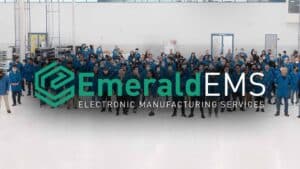The introduction of millennials into the workforce presented employers with new challenges. Despite their generalized entitled and high-maintenance nature, many millennials were forced to consider less-appealing jobs due to the Great Recession. However, their new ideas and fluency with technology benefited many companies in the long run. Now, Gen Z is entering the workforce and has created a whole other shift in the workplace. Are you ready?
Who is Gen Z?
Members of Gen Z were generally born between the mid-’90s and 2010 and are the most diverse generation to date. A significant detail about Gen Z is that this generation has never known life without technology. Gen Zers are accustomed to having technology at their fingertips and use an average of five types of screens.
Even with their reliance on technology, Gen Z craves real-life connections and regular interaction. Other characteristics to be mindful of are that Gen Zers are cautious but reasonable consumers, hard workers, and driven by security.
Culture Shifts
Gen Z might be the most emotionally in-tune generation yet. According to The New York Times article, “The 37-Year-Olds Are Afraid of the 23-Year-Olds,” this generation is more inclined to prioritize mental health. One manager reported that Gen Z employees will call in sick if they do not feel well mentally. Gen Z is also cautious of insensitive or inflammatory language yet stretches the boundaries of professional conversation. Additionally, this generation is highly passionate about social issues and expects/urges employers to take social responsibility.
Despite these sensitivities, Gen Z is certainly not “soft.” These individuals are not afraid to speak up or defy the workplace hierarchy. Members of this generation will not think twice about leaving their employers, either. LinkedIn found that Gen Z’s job transitions have increased by 80%. In contrast, the increase in job transitioning by Millennials went up by 50%.
Along with prioritizing mental health is the need for work-life balance. The shift to remote work during the COVID-19 pandemic also significantly influenced this. Many Gen Z workers never experienced the “traditional” work environment and thus, translate returning to the office with losing their freedom. According to Business Insider, an ADP survey found that more than two-thirds of Gen Z employees wanted jobs that indefinitely stay remote. Additionally, 71% of 18 to 24-year-olds said they would consider looking for another job if their employer insisted on returning to the workplace full-time.
How to Attract/Retain Gen Z Workers?
Manufacturing has had its difficulties attracting younger generations in general. One struggle we face is that younger talent finds it more appealing to work as a delivery driver for a tech giant. This is partly due to the misconception that all manufacturing is dirty antiquated workspaces and repetitive mundane tasks.
The first step to attracting Gen Z workers is to show what working in manufacturing is really like. Yes, this means through social media. We must also re-evaluate the benefits of working for your organization to align with the needs of Gen Z. Betterteam recommends the following:
- Offer flexible hours (a great alternative when remote work isn’t an option)
- Offer industry-related training
- Provide the opportunity for growth
- Provide the latest technology and software
- Show that your company cares about the community and your employees
Catering to these new ideas might seem daunting, but it is worth the investment. Remember that Gen Z members are hard workers. We managed to work with millennials and certainly can adapt to this new workforce generation.
Contact us HERE to learn more about working in Electronics Manufacturing.





